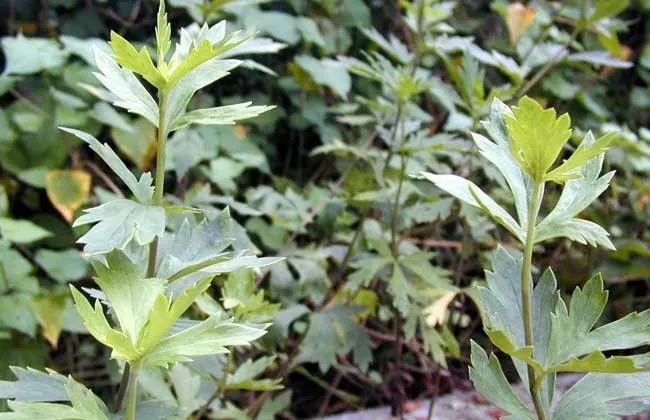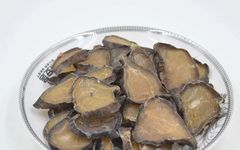
Alias: Zhi Fu Pian (Processed Aconite), Fu Pian (Aconite Slices), Zhi Fuzi (Processed Aconite), Hei Fuzi Pian (Black Aconite Slices), Bai Fu Pian (White Aconite Slices), Yan Fuzi (Salted Aconite), Hei Shun Pian (Black Shun Slices)Taste and Properties: Pungent, extremely hot, highly toxicMeridians: Heart, Kidney, Spleen.Efficacy and Functions of Fuzi Revives Yang and rescues from collapse, supplements fire and assists Yang, disperses cold and alleviates pain. Used for Yang collapse with cold limbs and weak pulse, insufficient heart Yang, chest obstruction and heart pain, cold and deficient vomiting and diarrhea, abdominal cold pain, kidney Yang deficiency, impotence and cold uterus, cold and water retention, Yang deficiency with external pathogens, and cold damp bi-syndrome pain.Dosage: 3-15g, decocted first, long decoction. Stops diarrhea, reduces swelling, expels wind-dampness, revives Yang and supplements fire, disperses cold and alleviates pain.1. Reviving Yang and Rescuing from Collapse (Yang Collapse) Used for Yang collapse syndrome with cold limbs, spontaneous sweating, and weak pulse, combined with Gan Jiang (Dried Ginger) and Gan Cao (Licorice), as in Si Ni Tang; used for Yang collapse with Qi deficiency, combined with Ren Shen (Ginseng) for Qi tonification, as in Shen Fu Tang. This herb is very potent, assisting heart Yang to open the vessels, supplementing kidney Yang to nourish fire, and rescuing lost Yuan Yang, making it the primary herb for “reviving Yang and rescuing from collapse” in clinical practice.2. Supplementing Fire and Strengthening Yang (Yang Deficiency Syndromes) Used for insufficient kidney Yang and declining Mingmen fire causing impotence, cold uterus infertility, cold pain in the lower back and knees, and frequent urination at night, combined with Rou Gui (Cinnamon) and Lu Jiao Jiao (Deer Antler Glue), as in You Gui Wan; used for Spleen and Kidney Yang deficiency with internal cold dampness causing abdominal cold pain and loose stools, combined with Dang Shen (Codonopsis) and Bai Zhu (White Atractylodes), as in Fuzi Lizhong Tang. This herb assists heart Yang, warms Spleen Yang, and supplements kidney Yang, suitable for all cases of weakened Yang Qi in the heart, Spleen, and Kidney.3. Dispersing Cold and Alleviating Pain (Cold Congealing Pain) Used for cold bi-syndrome pain, it can both warm and disperse to alleviate pain, and expel wind, cold, and dampness. This herb is a key medicine for treating cold bi-syndrome pain.4. Guiding Other Herbs: Fuzi possesses a strong and robust quality, and when combined with other herbs, it can guide them directly to the meridians. It can guide Qi tonifying herbs through the twelve meridians to restore lost Yuan Yang; guide blood tonifying herbs into the blood to nourish insufficient true Yin; guide dispersing herbs to the skin to expel wind and cold; and guide warming herbs to the lower jiao to eliminate internal cold dampness.5. Supplementing Kidney and Strengthening Yin: Fuzi enters the Heart, Spleen, and Kidney meridians, with a pungent and extremely hot nature, making it particularly effective in supplementing the kidneys and strengthening Yin, used for urinary obstruction, kidney Qi ascending, and bladder pain.

Indications for Fuzi Used for Yang collapse with cold limbs and weak pulse, impotence, cold uterus, cold pain in the heart and abdomen, cold and deficient vomiting and diarrhea, cold and water retention, fatigue, Yang deficiency with external pathogens, cold damp bi-syndrome pain, cold stagnation dysmenorrhea, Yin abscess, longevity issues, and all conditions of deep cold and stubbornness. In modern clinical practice, it is commonly used for coronary heart disease, pulmonary heart disease, rheumatic heart disease, sinus tachycardia, conduction block, nephritis, chronic renal failure, cardiogenic shock with heart failure, and thromboangiitis obliterans.Contraindications for Fuzi Overdose, prolonged use, improper processing, insufficient decoction time, or in sensitive individuals can lead to toxicity, presenting symptoms such as numbness of the lips, face, or body, tremors, palpitations, chest tightness, restlessness, and even convulsions, arrhythmias, confusion, cold limbs, weak pulse, low blood pressure, and urinary difficulties. Contraindicated in cases of Yin deficiency with Yang excess, true heat with false cold, and in pregnant women. Avoid with centipedes. Avoid wind, Gan Cao, Huang Qi (Astragalus), Ren Shen (Ginseng), Wu Jiao (Black Garlic), soybeans, mung beans, Wu Jiao, Tong Shou (Child’s Urine), and rhinoceros horn. Avoid with fermented soy sauce and millet. This herb is antagonistic to Gua Lou (Trichosanthes), Bai Lian (White Lily), Ban Xia (Pinellia), Bai Ji (Bletilla), and Bei Mu (Fritillaria).Methods of Consumption for Fuzi – Efficacy of Soaking in Water Daily dosage: 3-10g, prolonged decoction can reduce toxicity. Can be made into pills or powders; for external use, ground into powder for application. Selected formulas1. For treating Jueyin cold pain type headache: Bu Guo Zhi (Psoralea) 10g, Rou Gui (Cinnamon), Fuzi, and Gan Cao each 5g. Decoction and strain. Drink as tea; regular consumption can treat headaches.2. Warming the Middle and Supplementing the Kidney: Fuzi 10g, Rou Gui 5g, first decoct Rou Gui and Fuzi in clear water. Strain and add one egg, cook until done for consumption.3. Warming the Middle and Dispersing Cold: Fuzi 5g, Gan Jiang 2g, rice 50g, and 2 green onions. First grind Fuzi and Gan Jiang into fine powder, wash the rice, and clean the green onions. Cook the rice with appropriate water, then add the powdered herbs, green onion segments, and brown sugar until the porridge is cooked.4. For stubborn oral ulcers: Sheng Huang Qi (Raw Astragalus) 30g, Chai Hu (Bupleurum), Huang Lian (Coptis) each 9g, Fuzi, Fang Feng (Siler), Lian Qiao (Forsythia) each 10g, Rou Gui 6g, Huai Niu Xi (Achyranthes) 15g, Lu Gen (Reed Rhizome) 20g, Sheng Di Huang (Raw Rehmannia) 12g, decoct and take one dose daily. Li Liping et al. reported significant efficacy in treating stubborn oral ulcers.5. For cold damp type diarrhea: Fuzi, Ren Shen (Ginseng), Gan Jiang, Zhi Gan Cao (Honey-fried Licorice), Bai Zhu (White Atractylodes) each 90g. Grind these five herbs into fine powder, mix with honey to form pills, making 30 pills in total. Take one pill, decoct, strain, and take warm before meals.Selection and Storage of Fuzi Choose Fuzi that is large, plump, firm, and has few residues and roots. For salted Fuzi, choose those with large, full, gray-black roots and a smooth surface. For black shun slices, choose those that are uniform, brown-yellow, and shiny. For Fu slices, choose those that are uniform, yellow-white, and semi-transparent.Authentic Production Areas of Fuzi: The traditional production areas are mainly Jiangyou in Sichuan and Chenggu, Mianxian in Shaanxi.

